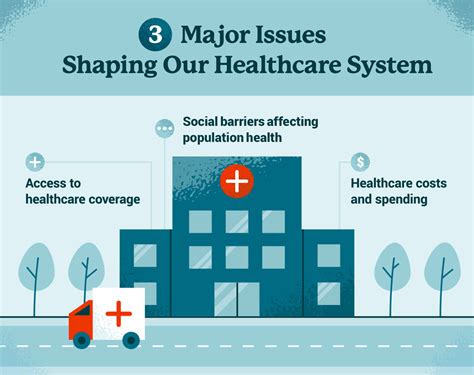Introduction

In the rapidly evolving landscape of healthcare, legal expertise plays a pivotal role in safeguarding patient rights, promoting ethical practices, and driving transformative change. A Health Law Fellowship provides a unique opportunity for promising attorneys to delve into the intricacies of health law, gaining specialized knowledge and experience that empower them to make a meaningful impact on the healthcare system.
Benefits of a Health Law Fellowship
1. In-Depth Knowledge Acquisition:
Fellows immerse themselves in the legal, ethical, and policy dimensions of healthcare. They master federal and state regulations, insurance law, medical malpractice, and public health law.
2. Practical Experience:
Fellows actively engage in real-world legal projects, gaining invaluable hands-on experience in drafting legislation, advocating for patients, and navigating complex healthcare systems.
3. Leadership Development:
Fellowships nurture leadership skills and foster collaboration with healthcare professionals, policymakers, and advocacy organizations. Fellows contribute to policy debates, present at conferences, and mentor junior colleagues.
4. Career Advancement:
Health Law Fellows are highly sought after by law firms, government agencies, nonprofits, and healthcare organizations. Their specialized knowledge and experience open doors to leadership roles and opportunities to influence healthcare policy at the local, state, and national levels.
Types of Health Law Fellowships
1. Government Fellowships:
- Centers for Medicare & Medicaid Services (CMS)
- Food and Drug Administration (FDA)
- Department of Health and Human Services (HHS)
2. Nonprofit Fellowships:
- American Health Law Association (AHLA)
- Kaiser Family Foundation
- National Health Law Program
3. Law Firm Fellowships:
- Arnold & Porter
- Covington & Burling
- McDermott Will & Emery
Eligibility and Selection
Eligibility requirements for Health Law Fellowships vary depending on the program. Most programs seek applicants with:
- A Juris Doctor (J.D.) degree from an accredited law school
- Excellent academic credentials
- Demonstrated interest in health law
- Strong legal writing and research skills
The competitive selection process typically involves a rigorous review of applications, interviews, and writing samples.
Sample Programs
1. The O’Neill Institute for National and Global Health Law Fellowship at Georgetown University Law Center
- Focuses on health law policy and regulation
- Provides opportunities for research, advocacy, and policymaking
- Partners with CMS, FDA, and other healthcare agencies
2. The American Society of Law, Medicine & Ethics (ASLME) Fellowship
- Provides training in medical ethics, healthcare law, and policy
- Fellows work on a variety of projects with hospitals, medical centers, and government agencies
- Emphasizes interdisciplinary collaboration
3. The Kaiser Family Foundation Health Law & Policy Fellowship
- Trains emerging leaders in health law and policy
- Fellows participate in health policy research, analysis, and advocacy
- Engages with policymakers, researchers, and healthcare stakeholders
Career Prospects for Health Law Fellows
Health Law Fellows pursue diverse careers in:
- Healthcare law firms
- Government agencies
- Nonprofit organizations
- Healthcare policy institutes
- Corporate legal departments
- Healthcare consulting
Conclusion
A Health Law Fellowship is an exceptional opportunity for attorneys to acquire specialized knowledge, gain practical experience, and become leaders in shaping healthcare policy. By leveraging their legal expertise, fellows make a tangible difference in the lives of patients, improve the efficiency of healthcare systems, and advance the public health agenda. As healthcare continues to evolve, the demand for skilled and experienced health law professionals will only grow, making a Health Law Fellowship an invaluable investment for anyone passionate about making a meaningful impact in this dynamic field.
Keyword-Focused Headings
Benefits of Health Law Fellowships
- Knowledge Acquisition and Expertise
- Practical Hands-On Experience
- Leadership Development
- Career Advancement
Types of Health Law Fellowships
- Government Fellowships
- Nonprofit Fellowships
- Law Firm Fellowships
Tables
Table 1: Health Law Fellowship Programs
| Institution | Program Title | Focus |
|---|---|---|
| Georgetown University Law Center | O’Neill Institute Fellowship | Health Law Policy and Regulation |
| American Society of Law, Medicine & Ethics | ASLME Fellowship | Medical Ethics, Healthcare Law, and Policy |
| Kaiser Family Foundation | Health Law & Policy Fellowship | Health Policy Research, Analysis, and Advocacy |
| Harvard Law School | Petrie-Flom Health Law Fellowship | Health Policy, Innovation, and Regulation |
Table 2: Health Law Job Market
| Sector | Projected Job Growth |
|---|---|
| Healthcare Law Firms | 20% |
| Government Agencies | 15% |
| Nonprofit Organizations | 10% |
| Healthcare Policy Institutes | 5% |
| Corporate Legal Departments | 3% |
Table 3: Specialized Knowledge Areas for Health Law Fellows
| Area of Expertise | Example Topics |
|---|---|
| Federal and State Regulations | HIPAA, FDA compliance, Medicare and Medicaid |
| Insurance Law | Health insurance coverage, reimbursement, fraud and abuse |
| Medical Malpractice | Standards of care, liability, and litigation |
| Public Health Law | Disease prevention, health promotion, and environmental health |
| Health Information Technology | Electronic health records, data privacy, and cybersecurity |
Table 4: Ethical Considerations in Health Law
| Ethical Principle | Application in Health Law |
|---|---|
| Autonomy | Patient consent, refusal of treatment |
| Beneficence | Promoting patient well-being, preventing harm |
| Non-Maleficence | Avoiding harm to patients, avoiding unnecessary treatments |
| Justice | Equitable access to healthcare, fair distribution of resources |
| Confidentiality | Protecting patient privacy, handling medical information |
